Aziz Haniffa in Washington, DC
The co-chairs of the Congressional Caucus on India on both the House side and the Senate are elated over the exponential growth of Indian investment in the US.
And, with the creation of thousands of jobs in this country, they are confident that this should put to rest the outsourcing bogey, where often India has been the 'whipping boy' particularly for political expediency during election time.
The lawmakers, speaking at a Capitol Hill event hosted by the Confederation of Indian Industry to release its new study about Indian companies investing heavily in the US and both saving and creating jobs, hoped that this message will alleviate the concerns over outsourcing and loss of American jobs among their constituents.
US Representative Joe Crowley, New York Democrat and co-chair of the Congressional Caucus on India and Indian Americans, said, "I am glad to see the CII report about investment from Indians in the US. It's an important aspect of the development of maturing between our two nations."
...
'Indo-US relation is mutually beneficial for both nations'
He said especially at a time when "there is a great deal of talk about outsourcing and jobs moving overseas, it's important that we not only invest in India, but India invests in the United States."
Crowley said such reverse investment "is critical, and so, thank you, for shedding light and that helps us in terms of convincing our constituents about this growing relationship - why it is important."
The lawmaker, also said he was "very excited about once again co-chairing the Indian Caucus with my good friend Ed Royce (California Republican). Ed and I have a great relationship as well - a very strong bipartisan relationship and one thing Ed and I both agree is that the relationship between India and the United States I'll say this and I hope and think that Ed would agree - is our most important foreign relation in this century."
...
'Indo-US relation is mutually beneficial for both nations'
Crowley said this "is not to diminish France and Britain and all the very important allies. (But) I say with regard to US and India, strategically it is the case and in terms of security, that is the case as well."
He recalled how he had had "the opportunity both as co-chair but also just as a rank and file member of the Caucus to be supportive of this growing relationship, and I've done that in this administration and I did it in the prior administration when Democrats were not in charge of anything thereabouts - during the civilian nuclear transfer deal."
"I believed then, as I do now," Crowley said, "that despite what's happened in Japan, that it was as symbolic as it was practical - it was both."
He said, "That deal was an important deal for our relations and I think other things are flourishing because of that."
...
'Indo-US relation is mutually beneficial for both nations'
Royce, in his remarks, said, "India and the US have two very real interests. One of them is the security interest - the counter-terrorism interest. We have realised that India and the US are in the same situation in terms of facing a tough struggle against terrorism. And, in order to do that, we've got to cooperate together."
He said he was "glad to see that our (Homeland Security) Secretary (Janet) Napolitano is going to India for these meetings to discuss these issues. They are issues that we've worked on for many, many years. We need to work very, very closely together."
"Another thing we share," Royce noted, "is respect for the rule of law and understanding that the commercialised unity between these two great democracies has to be increased. We must work on opening markets between India and the US".
...
'Indo-US relation is mutually beneficial for both nations'
Royce, in his remarks, said, "India and the US have two very real interests. One of them is the security interest - the counter-terrorism interest. We have realised that India and the US are in the same situation in terms of facing a tough struggle against terrorism. And, in order to do that, we've got to cooperate together."
He said he was "glad to see that our (Homeland Security) Secretary (Janet) Napolitano is going to India for these meetings to discuss these issues. They are issues that we've worked on for many, many years. We need to work very, very closely together."
"Another thing we share," Royce noted, "is respect for the rule of law and understanding that the commercialised unity between these two great democracies has to be increased. We must work on opening markets between India and the US".
...
'Indo-US relation is mutually beneficial for both nations'
Royce predicted that "it will be a win-win for India and the US and as we move forward together, I am for building these relationships with democratic states that respect political pluralism like India."
Taking a hefty swipe at China, he said, "We've sunk so much money into this relationship with China, which has been a one-way street and on the Foreign Affairs Committee, I will endeavour to hold hearings in which we show how poorly investments have performed for investors in China."
Royce said, "The people in this room (that was packed with American and Indian businessmen doing business in each other's countries) know how well investments have gone for American companies here and for Indian companies in the US.
...
'Indo-US relation is mutually beneficial for both nations'
Photographs: Jim Young/Reuters
US Representative Jim McDermott, Washington state Democrat, and erstwhile co-chair of the India Caucus, said, "I remember the years when I first went to India and everybody said, you can't trade with India - it's impossible. The permit Raj makes it impossible. That you can't get anything done there."
McDermott has visited India more than 22 since 1989, when he, a physician by training. He has been to India with Michigan-based Dr Raj Bothra to investigate the HIV/AIDS pandemic in the red-light districts in Mumbai and Kolkata.
"(But) Things have changed dramatically over the last 20 years," he said, "and the process that Manmohan Singh began when he was Finance Minister has really flowered in today's economy and we in the United States now are deeply involved with India."
McDermott said, "In my own state, HCL America, Infosys, Mahindra Satyam, Mindtree, ICC, TCS, and Wipro all have offices or operations in the state of Washington and that's true across the entire country."
...
'Indo-US relation is mutually beneficial for both nations'
He said, "What has happened over the last 20 years, is that America discovered India, and we discovered that there were people like us who shared many values and shared much in common.
Even though India has 17 official languages and we still have only one, there still is a great deal of commonality. In the long run our, relationship is going to last longer than some other countries to the north and east of India."
McDermott said, "The best part about what India has done is that an awful lot of Indians have come to the United States and taken jobs and started companies."
"If you go to Silicon Valley, you find companies all over the place started by Indians and who have made the connection. And the nice part is that they are on one side of the earth and we are on the other, so that you can have 24/7 use by the Internet," he said.
...
'Indo-US relation is mutually beneficial for both nations'
Photographs: Reuters
McDermott said, "You can do it all day in one place and send it at night to the other place, and they could work on it all day. So it goes around and around. It is a very, very strategic connection for everybody in the United States."
Senator John Cornyn, Texas Republican, who founded the Friends of India Caucus in the US Senate, said, "The trading relationship we have with India is something we value very much."
He pointed out that "Indian exports to America grew by nearly 40 percent over the five years ending in 2009. America's exports to India grew by nearly 170 percent as well."
"I would be remiss if I didn't point out these figures have also reflected the growth in exports and trade between Texas and India - $1.6 billion in 2006 and $2.1 billion in 2010."
...

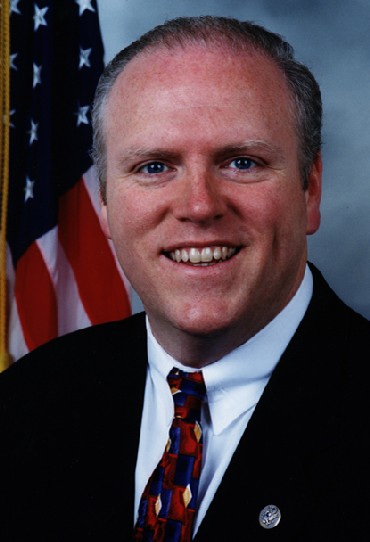
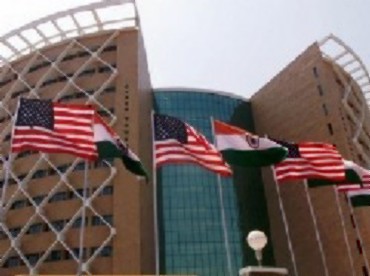

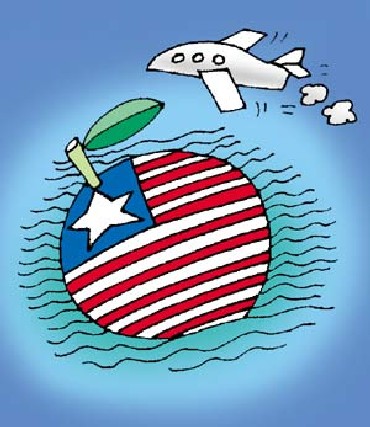
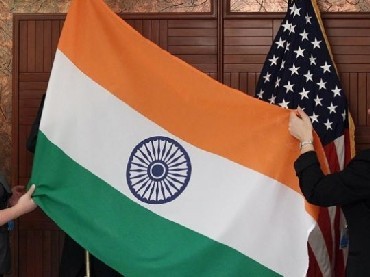
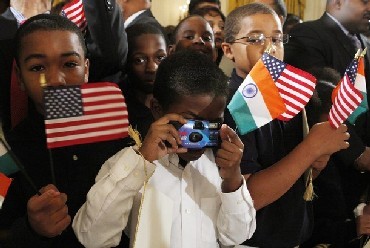
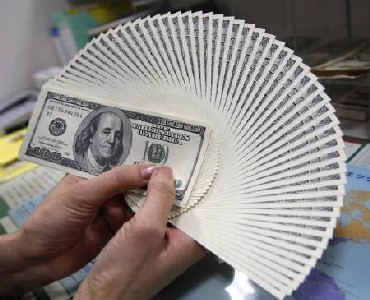
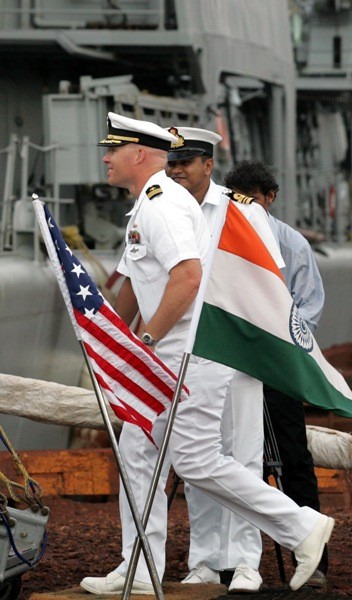
article